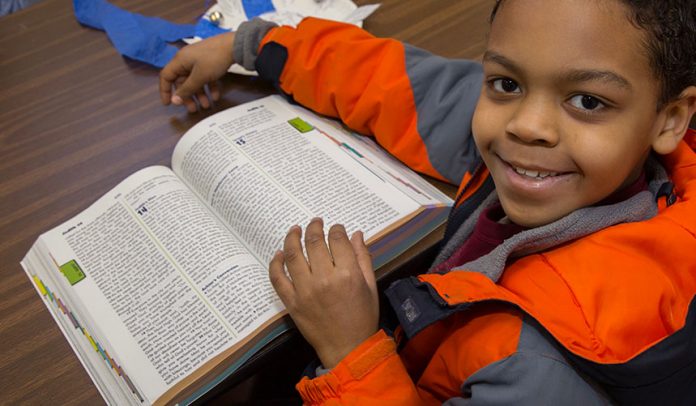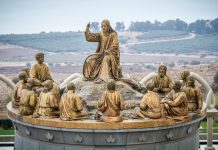
by Karen M. Elliott, CPPS
The biblical stories of individuals called into a vocational covenant with God and God’s people are as inspiring today as they were in ancient times. The theme of “call” is found throughout the stories of God’s relationships with people as recorded in the sacred Scriptures. Church history is replete with stories of charismatic persons who not only responded to God’s call but also inspired others to “come and see” as well.
Biblical Responses
In the vast majority of these stories, the human frailties and imperfections of the individual who is called are highlighted; often these imperfections are cited in the individual’s response to God’s call. Some examples include:
Isaiah prays, “Woe is me, I am doomed! For I am a man of unclean lips, living among a people of unclean lips” (Isaiah 6:5). Later, however, Isaiah hears the voice of God saying, “Whom shall I send? Who will go for us?” and Isaiah responds, “Here I am, send me!” (v. 8).
Jeremiah responds to God stating, “Ah, Lord God! I do not know how to speak, I am too young!” God answers, “Do not say, ‘I am too young.’ To whomever I send you, you shall go; whatever I command you, you shall speak. Do not be afraid of them, for I am with you to deliver you” (Jeremiah 1:6-8).
Hannah, the mother of Samuel, is so distraught that, in pouring her heart out to the Lord in prayer, she is mistaken by Eli, the priest in the Temple, for a “drunken spectacle.” However, Hannah responds in prayer, “Let your servant find favor in your eyes.” When God hears and answers Hannah’s prayer for a son, she dedicates her son, Samuel, to the Lord as she had promised (see 1 Samuel 1:9-20). Hannah’s prayer recorded in 1 Samuel 2:1-10 is similar to the Canticle of Mary found in Luke 1:46-55.
Samuel is called by God three times before he understands. Yet, when he “gets it,” he responds, “Speak Lord, for your servant is listening” (1 Samuel 3:10).
Huldah the prophet, trusting in God’s call, speaks truth to power by speaking to the messengers of Hezekiah, the King of Judah, and instructing them to call the king to repent and return to God with his whole heart (see 2 Chronicles 34:22-33).
Mary Magdalene, the Apostle to the Apostles, follows Jesus’ command to go and tell the disciples the news of his Resurrection (see John 20:16-18).
Mary, the Mother of Jesus, gives us the greatest example of responding to God’s call. When the Angel Gabriel appears to Mary and asks her to be the Mother of God, she speaks these words: “I am the servant of the Lord. May it be done to me according to your word” (Luke 1:38).
Inspired by the example of these biblical stories, as well as countless others, those who have been called throughout the ages and those who are called today enthusiastically embrace the call to serve God and God’s people. Individuals who are called and who respond to God’s call are not “perfect,” and yet God works through them. A well-known maxim states: God does not call those who are equipped; God equips those who are called.
Vocation in General
The word vocation comes from the Latin vocare, which means “to call.” Each of us has a vocation to be a disciple (follower) of Jesus by reason of Baptism. That call is deepened and strengthened through the Sacrament of Confirmation. Like those whom we read about in the sacred Scriptures or in the lives of the saints, we, too, have our imperfections and human frailties. Through the grace of God at work in us, we are able to do great things for God and the People of God in the simple, day-to-day events of our lives.
When we speak to our students about God’s call to be disciples of Jesus, it is important that we understand the words associated with “vocation” so to better inform our students and respond to their questions.
Vocation to priesthood, permanent diaconate, and religious life: Some people are called to a “religious vocation”—specifically, that of ordained ministry in the priesthood, permanent diaconate, or vowed life as a brother or sister. These particular lifestyles have evolved during the Church’s history. The earliest form of religious life was individual rather than communal. Beginning in the third century, the early desert fathers and mothers chose to live in solitude and austerity in order to deepen their relationships with God. The first communities were founded in the fourth century.
Charism: This word from the Greek meaning “free gift” is the term that St. Paul uses to encourage the Christian community to recognize that the Holy Spirit graces us with gifts for the specific purpose of building up the Body of Christ. The gifts of the Spirit is the dominate theme of 1 Corinthians 12—14. This is the heart of vocation—to embrace one’s own gifts and talents, knowing that they are given by God to each person and within each community’s specific charism for the building up of the Body of Christ.
Religious congregations (or communities): There are groups of men and of women whose members are devoted to lives of prayer and apostolic ministry. Each community is dedicated to a specific charism rooted in the life of the founder and in the needs of the historical period in which the community was established.
Cloistered communities: Some congregations of men and of women are devoted to the charism of contemplative prayer. These communities live in cloisters, monasteries, or convents which they seldom leave. Their daily lives of prayer and work take place within the confines of the monasteries or convents.
Priesthood: Today, in the Roman Catholic Church, men are ordained priests through the Sacrament of Holy Orders. These men promise obedience to the bishop of the archdiocese/diocese in which they serve. They also promise that they will not marry (celibacy).
There are religious orders of priests, such as the Jesuits, Dominicans, and Franciscans. In addition to the promises (vows) of obedience and celibacy, these men make vows of poverty. Some religious orders of men also include brothers. These are men who make the same vows and live in community. However, they are not ordained priests.
Women religious: Many of the religious congregations of women who minister in the United States trace their founding to other countries, particularly Europe. A few congregations, such as the Sisters of Charity (begun by St. Elizabeth Ann Seton) and the Sisters of the Blessed Sacrament (established by St. Katharine Drexel) were founded in the United States. What all these communities have in common is their vowed commitment to lives of poverty, chastity, and obedience. How they respond to the needs of the People of God varies according to the specific purpose (charism) of the congregation. Historically, many sisters served as educators in Catholic schools (elementary, secondary, and collegiate levels); as health care workers, especially in nursing and administration in Catholic hospitals; and as social workers assisting people with a variety of needs.
Since the Second Vatican Council (late 1960s and beyond), sisters have responded to the needs of the times in a variety of ways. Some sisters serve in parishes as directors of religious education; others are involved in raising awareness and seeking solutions to the complex social issues of our day, such as immigration, health care, and global warming.
In religious life today, there are multiple ways that members support one another. Some choose to live in small groups with members of their own community; some choose to live in small groups with members of other religious communities; some live individually; and some choose to live in large groups, such as their community’s “motherhouse” or central residence. Regardless of how they choose to live, members of religious communities are united by the bonds of prayer and rooted in faith; they are committed to a common vision and purpose that is grounded in the community’s founder/foundress and history. Their ultimate goal is to serve God and the People of God and to support and care for one another.
Formation: Each congregation has its own process by which an individual becomes incorporated as a member of the community.
A person engaged in the initial step of formation is usually referred to as a postulant, a candidate, an inquirer, or an affiliate. While the names vary, the intent during this stage of formation is to provide the individual with experiences and companions during this period of discernment to a call to the specific congregation.
A common experience in every community is a period of intense prayer and study named by canon law as the novitiate.
Vows, promises: Following the novitiate, the individual commits his/her life to God through the public profession of the vows of chastity, poverty, and obedience, which deepen his/her baptismal commitment. The vows, also called evangelical counsels, relate the individual to God and to God’s people and enable the individual to share fully in the work of the Church. Initially, the individual makes temporary profession for a period of three to six years. After this time period, the individual, feeling called, makes perpetual profession which is a lifelong commitment.
Celibate love focuses the individual’s energy toward ministry and prayer, and encourages one to love as Jesus loved. The vow of poverty calls the religious to express his/her dependence on God and to be a wise steward who lives simply in order to be an authentic witness to gospel values. Members of the congregation hold in common all material goods. Through the vow of obedience, religious seek to trust themselves to God’s divine providence and to do God’s will. Religious promise to obey those in authority in the congregation and in the Church.
The inherent beauty and depth of the vows is not in what is prohibited but in how the vows free the individual to be and to do for God and for God’s people. The vows grace the individual with many opportunities to make room for other things so he/she can serve God through ministering to the needs of the People of God.
A Joyful Embracing
An ancient Egyptian proverb states that when we reach heaven’s gate, two questions will be posed: “Have you found joy in life?” and “Have you brought joy to others?” Engaging in a life of religious vocation and responding to God’s call in one’s life is an affirmative response to both of these questions. It is a joyful embracing of God’s call in our life, shared in community in religious life and in the priesthood. It is a deep listening to God in prayer, graced by the strength, courage, and nourishment of community through the good times and the bad times. It is a joining in and being a part of the legacy of the men and women who, throughout the ages, have dedicated themselves fully to religious life, sharing in lives of prayer and ministry to those in need, being joyful witnesses to the Good News of Jesus Christ, and being bearers of hope to a world in need.
The Call Throughout the Ages
Today our religious, historical, and political contexts are vastly different from years gone by; however, the call to religious life or priesthood is not rooted in our geographic or historic context. Rather, it is rooted in God who calls each individual.
The Acts of the Apostles 2:42-47 tells the story of the early Christian community and its dedication to the “breaking of the bread” and communal life. The story recounts how members of the community inspire others to join with them because they live with “exultant and sincere hearts.”
So, too, individuals are still being called today to respond to God’s invitation. God is still calling individuals to religious life and to the priesthood, to embrace lives of prayer, lives focused on God and on serving those in need. God’s continual call throughout the ages is for individuals to be faithful servants of the Lord, servant leaders who are dedicated to embracing Jesus’ call to his disciples, “…whoever wishes to be great among you shall be your servant” (Matthew 20:26).
All of us who are baptized are called by God to be disciples of Jesus. We respond to God’s call as wives, husbands, parents, singles, ordained priests, permanent deacons, vowed religious sisters or brothers. When we reach heaven’s gate at the end of our earthly lives, we want to have lived our vocations in ways that fulfill God’s will. We long to hear God’s welcome: “Well done, my good and faithful servant” (Matthew 25:23).
Sister Karen M. Elliott is a Sister of the Precious Blood of Dayton, OH. Sister Karen is a member of the Catholic Theological Society of America and the Catholic Biblical Association of America. She is the author of Women in Ministry and the Writings of Paul, published in 2010 by Anselm Academic. Sister Karen is the Chairperson and an Associate Professor of Religious Studies at Mercy College of Ohio in Toledo. She also serves as the Interim Director of Graduate Studies at the college.
Copyright 2014, Bayard, Inc. All rights reserved. This article is protected by United States copyright and other intellectual property laws and may not be reproduced, rewritten, distributed, redisseminated, transmitted, displayed, published or broadcast, directly or indirectly, in any medium without the prior written permission of Bayard, Inc.




